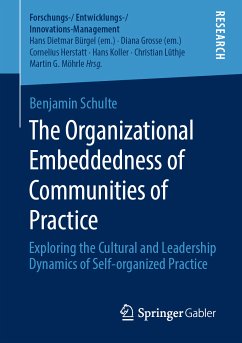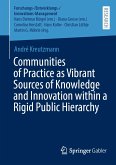The Author
Benjamin Schulte is a post-doctoral researcher at the Institute of Technology and Innovation Management at the Helmut Schmidt University - University of the German Federal Armed Forces. He examines the micro-processes and dynamics of organizational adaptability and innovativeness, mostly utilizing qualitative research methods and a practice lens viewpoint. In particular, he currently studies how adaptive and innovative practices such as the lean startup method are introduced, translated, and embedded in the broader socio-cultural and institutional context of established bureaucratic organizations. His research has been published in the Journal of Leadership and Organizational Studies and the IEEE Transactions on Engineering Management.
Dieser Download kann aus rechtlichen Gründen nur mit Rechnungsadresse in A, B, BG, CY, CZ, D, DK, EW, E, FIN, F, GR, HR, H, IRL, I, LT, L, LR, M, NL, PL, P, R, S, SLO, SK ausgeliefert werden.









